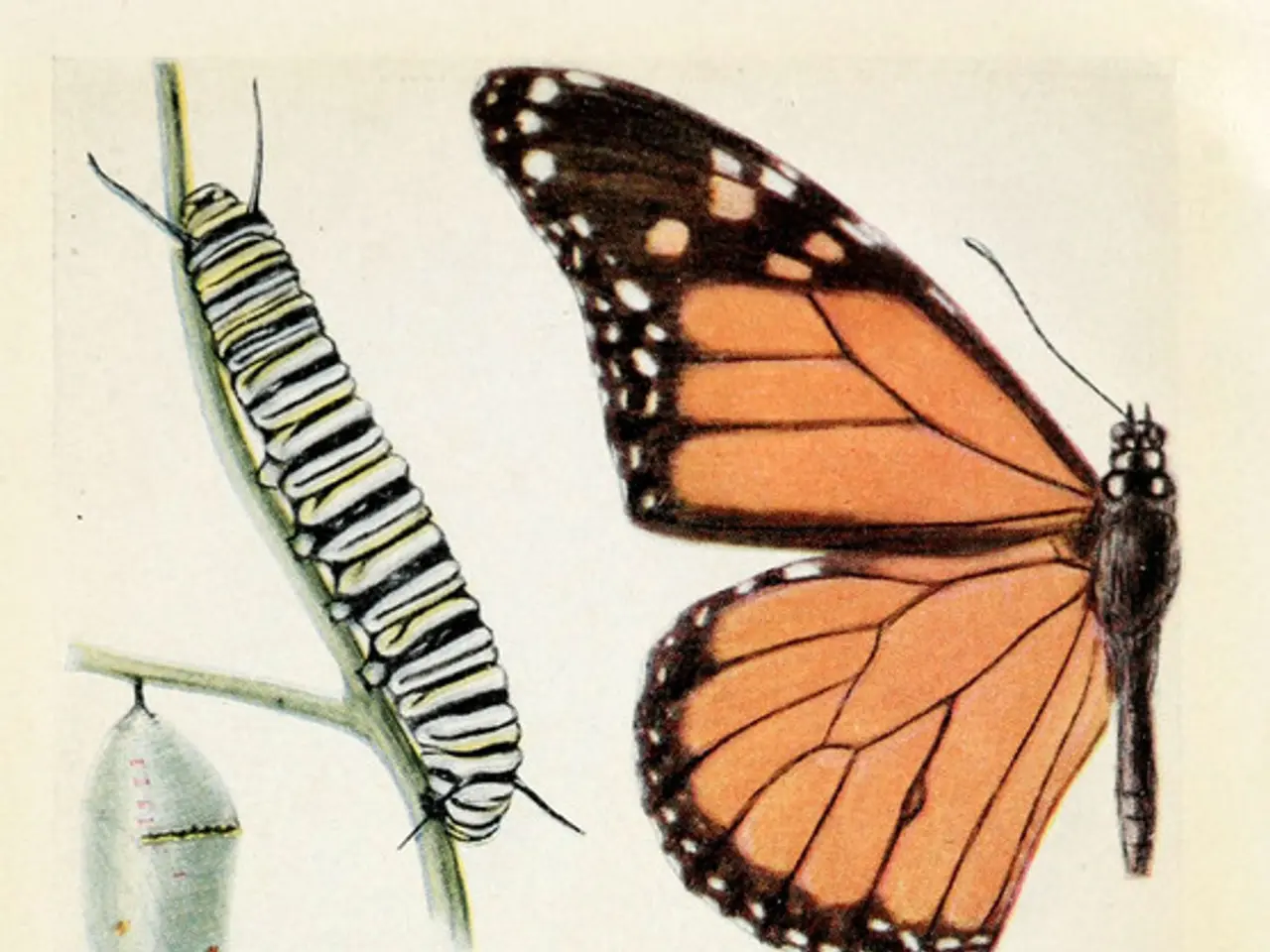Interconnected Worlds of Affection: Heather Swan's Narratives on Insects and Life's Intricate Networks
Heather Swan, an award-winning eco-poet and teacher of environmental literature at the University of Wisconsin-Madison, has a unique approach to inspiring people to appreciate the beauty and importance of insects in our ecosystems.
Swan's love for insects was sparked by a famous poem by Mary Oliver that inspired her to notice the small, unusual, and beautiful aspects of life. This appreciation extended to bees when she learned about colony collapse and the danger facing various flying insects, including native bees, moths, and dragonflies.
Swan's new book, "Where the Grass Still Sings: Stories of Insects and Interconnection," is a richly illustrated celebration of insects and their crucial roles in ecosystems. The book is a testament to Swan's belief that poetry can help bring people into a closer relationship with the natural world.
Swan's work aims to remind people of the complicated, strange, and beautiful creatures living around them and to invite people to think about them differently. She finds bees beautiful and admires the care they have for each other as a model for sustainable living.
Swan's personal experiences have also shaped her approach. She shared a powerful story about her own courage to love when her daughter was born with punctured lungs and was at risk of dying. Despite the potential loss, Heather chose to love her daughter and stay with her, which led to both of them surviving.
Swan's courage to love extended to her environmental activism. She has spoken up about the harmful effects of pesticides on the environment, including a personal incident where she and her daughter were sprayed by a crop duster, leading to her daughter having a lymph gland the size of a mango and being very sick.
In a recent interview on the radio show "To The Best of Our Knowledge," Swan discussed her work and her passion for insects. She also shared stories about observing bees caring for each other, even in times of distress, and how this behaviour serves as a model for sustainable living.
Swan's work is a reminder that even the smallest creatures have a crucial role to play in our ecosystems and that by appreciating and understanding them, we can foster a deeper connection with the natural world.
Philosophy and personal growth intertwine in Swan's work as she uses her poetry to inspire environmental self-development, encouraging people to value and revere insects and their integral roles in our ecosystems.
Her educational background in environmental science, coupled with her passion for philosophy, helps her bridge the gap between science and art, offering unique perspectives on climate change and sustainable living.
Swan's experiences in education and self-development highlight the importance of empathy and resilience, exemplified in her courage to love her daughter despite hospitalization and her advocacy against harmful pesticides in the environment.




